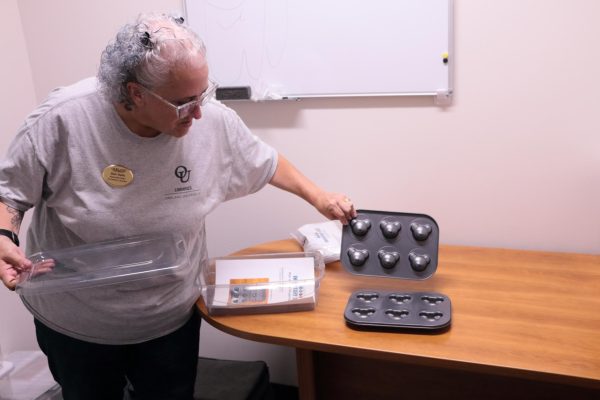The road to research: How Dr. Raffel became the principal investigator for his own lab
If it were not for his fifth grade teacher, Dr. Thomas Raffel would not be playing with parasites. After years of schooling and a few other research projects, Raffel has now turned his focus to studying the way temperature affects disease performance.
Raffel is an associate professor of biology at Oakland University and the principal investigator for the Raffel Disease Ecology Lab. After years of ecological and biological research, his current research focuses on how temperature changes affect infectious diseases. This is done by using parasites and ectotherms — animals that regulate heat through external means, commonly referred to as “cold-blooded” — to gauge this.
Raffel’s road to research began in the fifth grade with a conversation between his teacher and his mother. His teacher praised Raffel’s ability at math and floated the idea of him possibly becoming an engineer. This made the young Raffel quite happy when he found out, and he could not wait to tell a friend about it. In return, the friend said he would become a scientist.
“I felt like I was being told he wanted to be an astronaut,” Raffel said. “It did not seem like a realistic possibility.”
But the friend struck a chord in Raffel, and he realized for the first time that he could actually become a scientist. He stuck to science and began to lean toward biology in high school. His anthropologist aunt would send him books about evolution, and by the time undergrad rolled around Raffel was majoring in evolutionary biology.
While an undergrad at Ohio Wesleyan University, Raffel took part in a research project studying microbes that degrade bird feathers, which let him later study infectious diseases in wild birds for his first academic paper.
“As I was working on that project,” Raffel said, “I began to realize how many unanswered questions there were about the ecology of infectious diseases. At the time there were not that many people studying disease in wild populations of animals and it seemed like this wide open, exciting interdisciplinary field I wanted to be a part of.”
The desire to study diseases lead Raffel to working with parasites, amphibians being the infectee of choice for experiments. And once Raffel began reading other studies, reports and research papers, he began looking into temperature to figure out why diseases were active on a seasonal basis.
Since joining OU and being allowed the space for a research lab, Raffel’s lab group has looked into issues of “swimmer’s itch” (a rash caused by snail-based avian parasites targeting human swimmers), harmful algae blooms in inland lakes and using MTE to develop better models of infectious disease dynamics.
Currently the Raffel Lab’s research is focused on amphibian chytrid fungus (Batrachochytrium dendrobatidis) and how well it can infect tadpoles or frogs at varied temperatures. The temperature dependence of infection depends on thermal responses of both the parasite and host — with data on both being hard to isolate. Raffel thinks a potential solution by using math derived from the metabolic theory of ecology (MTE). Raffel received a CAREER grant from the National Science Foundation for this research.
Going forward, Raffel wants to try combining MTE with dynamic energy budget theory to see how temperature influences energy budgets in animals.
“If we really want to understand how these organisms are responding to changes in temperature through time, one of the most powerful ways to explain the things we are seeing is to combine these two theoretical frameworks,” Raffel said.
Biology students interested in helping out with Raffel’s research, such as enrolling in BIO 4995, can apply through the lab’s website.





